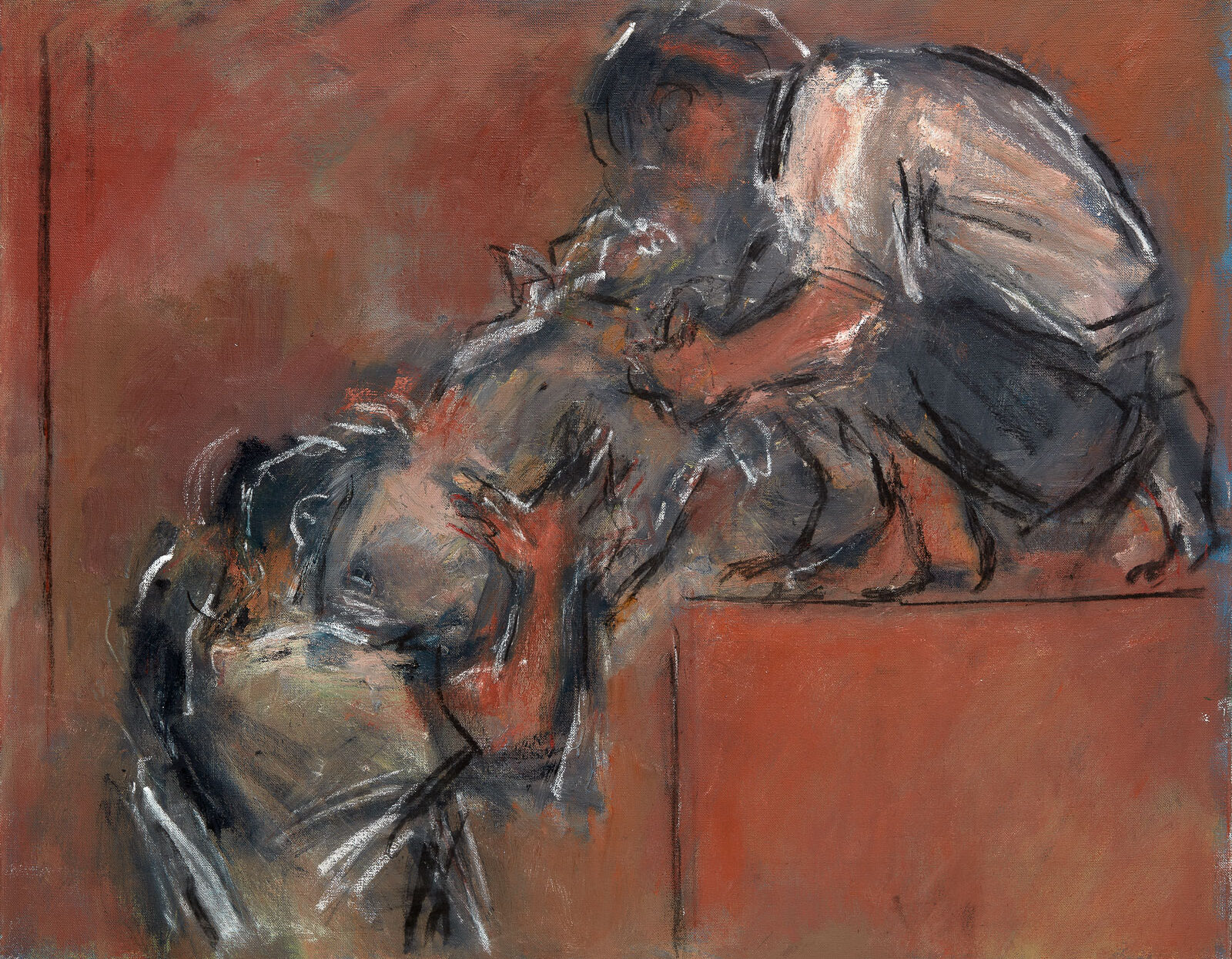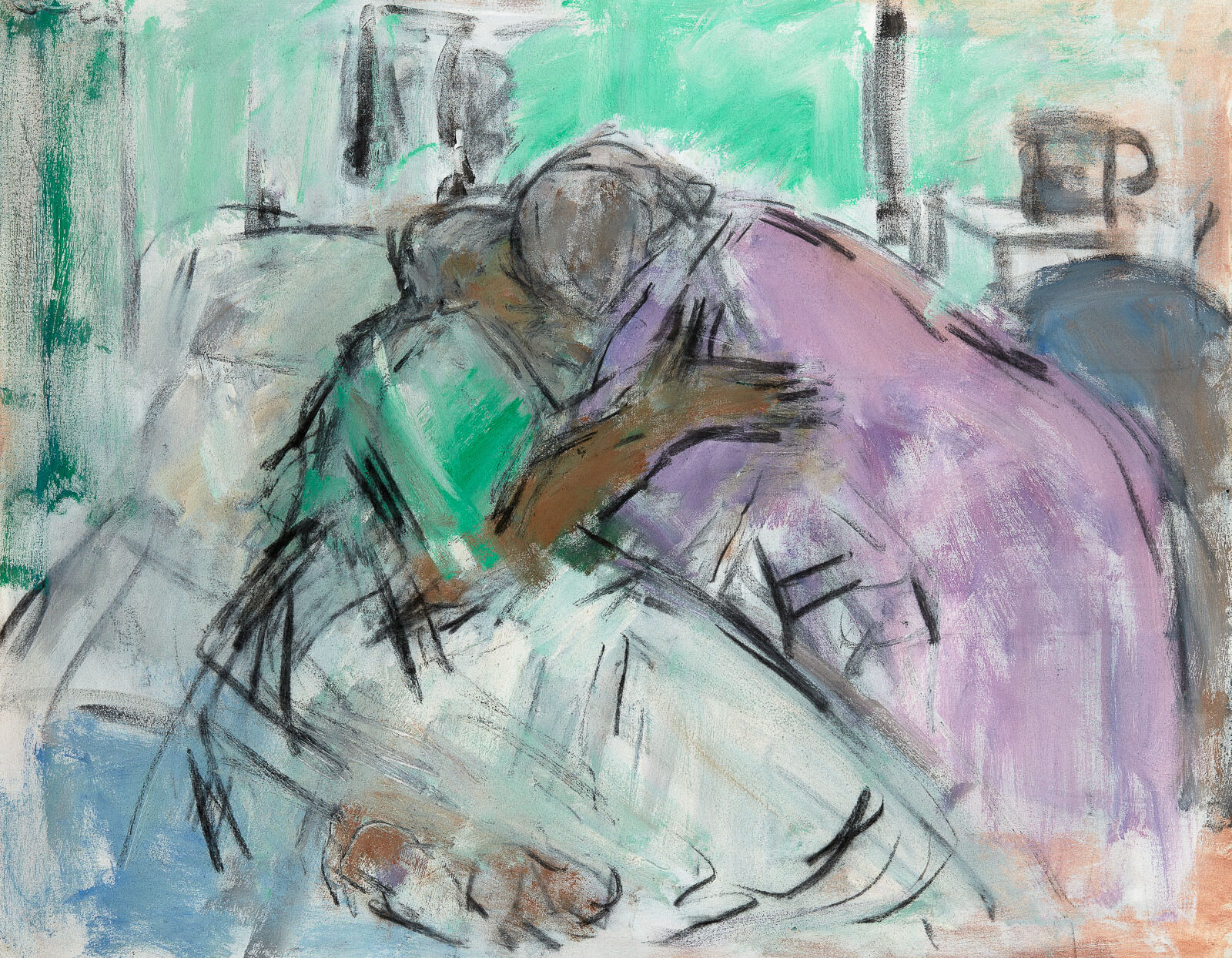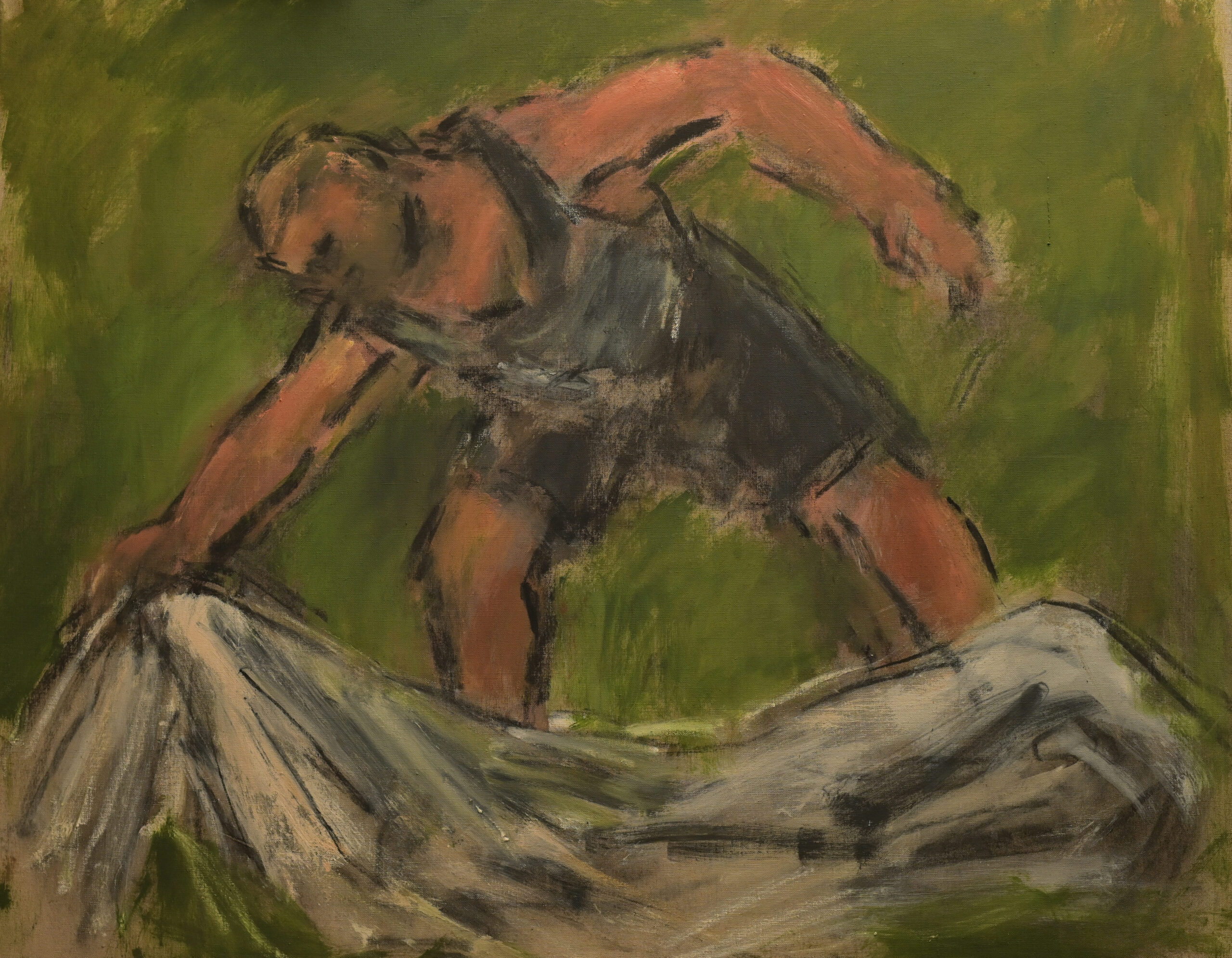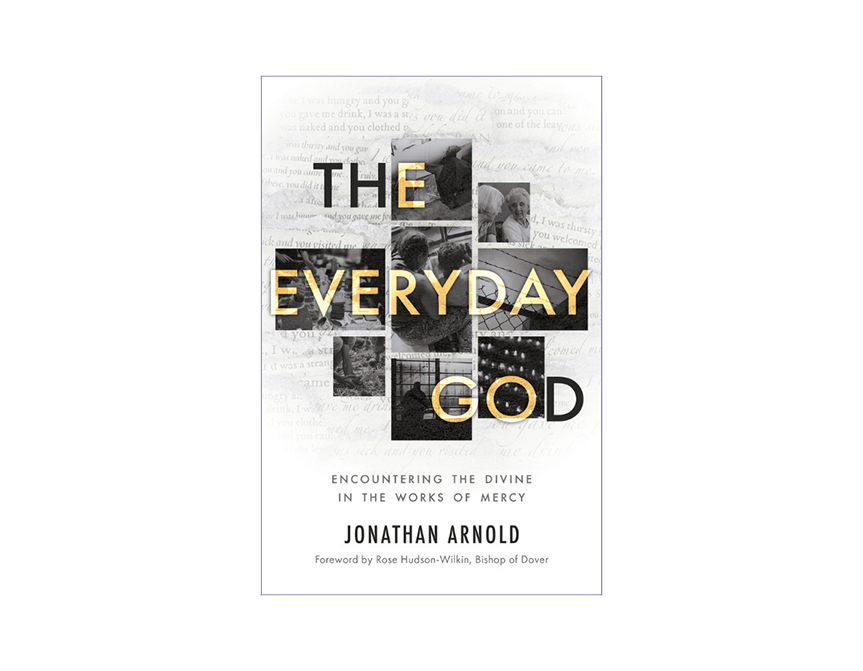We’re delighted that Canterbury diocese has chosen The Everyday God by Jonathan Arnold as their 2025 Lent book and are recommending it to Lent groups across the diocese. Jonathan, executive director of the Social Justice Network, has prepared a study outline for groups and individuals which we’re offering to you as a free resource, wherever you live.
Combining profound but accessible theological reflection, moving contemporary stories of deprivation and need, and compelling musical metaphors, Jonathan – musician, priest and social activist – explores the enduring and non-negotiable challenge of the works of mercy outlined in Matthew 25:34–40: Jesus’ call to feed the hungry, clothe the naked (shelter the homeless), give drink to the thirsty, heal the sick, visit the imprisoned, welcome the stranger and bury the dead.
Continuing on from last week’s extract, the following is from the section entitled ‘Overture’.
16 March 2025
The works of mercy
The works of mercy mentioned by Christ in Matthew 25 are known as ‘corporal’, because they pertain to the body, or corpus, and are about our physical needs. The six works of mercy named by Jesus are to feed the hungry, give drink to the thirsty, to clothe the naked, to welcome the stranger, to visit the prisoner and to visit the sick. The seventh work of mercy, to bury the dead, is not mentioned in Matthew 25 but comes from the book of Tobit and was added to the list later in Christian history.
The importance of performing these duties was urged on Christians from the earliest days of the church, in fact from Christ’s declaration of the two highest commandments:
‘You shall love the Lord your God with all your heart and with all your soul and with all your mind.’ This is the greatest and first commandment. And a second is like it: ‘You shall love your neighbour as yourself.’ On these two commandments hang all the Law and the Prophets.
Matthew 22:37–40
Fulfilling the works of mercy therefore goes hand in hand with loving God and our neighbour. As St John of the Cross wrote: ‘At the evening of life, we shall be judged on our love.’ For Aquinas, the virtue of practising mercy was part of the greater command and virtue of love, and for him it was this virtue which was the essence of the divine.
In Catholic theology, the seven works of corporal mercy were complemented by the seven spiritual works of mercy, whose purpose was to relieve spiritual suffering. These are: to instruct the ignorant; to counsel the doubtful; to admonish sinners; to comfort the afflicted; to bear wrongs patiently; to forgive offences willingly; and to pray for the living and the dead.

Fulfilling the works of mercy goes hand in hand with loving God and our neighbour.
Left: Ghislaine Howard, The Seven Acts of Mercy: Feed the Hungry, 2013
Theological debate
Of course, this passage from Matthew’s gospel has caused theological debate throughout history, insisting as it does that according to our merciful deeds, or lack of them, we shall be judged and sentenced to everlasting heaven or hell. In Catholic theology, this seeming endorsement of justification by works stands against the view that God’s grace is offered to us freely in the sacraments. In Protestant theology, Jesus’ words seem to contrast with the Lutheran imperative that we are justified to God by faith alone.
Such debates will no doubt remain as we struggle to understand the nature of creation and our place within it, but what can unify theological or religious difference is the fundamental sense that all of us are made by a merciful God and in God’s image, and our purpose is to worship and love that creator and to exercise love towards each other as we are best able to do.
This involves treating others, especially those with whom we strongly disagree or whom we dislike, as holy, uniquely loved children of God. We are commanded to treat the stranger as if they were Christ by offering what we can to help or comfort and in this way to join in with God’s grace, which is at work in this world, singing the song of mercy and justice.
It is important to note at this stage that the efficacy of the works of mercy is grounded on God’s mercy and not our own. St Bernard of Clairvaux asked: ‘What can I count on? My own merits? No. My merit is God’s mercy… If the mercies of the Lord are manifold, I too will abound in merits.’
Moreover, these works of mercy are not just about satisfying people’s material needs – of food, drink, shelter and so on. It is not just about the alleviation of material poverty. It is much deeper than that; it is also about prayer, sacrifice and love, as Mother Teresa said:
If we pick up a man hungry for bread, we give him bread and we have satisfied his hunger. But if we meet a man who is terribly lonely, rejected, discarded by society… material assistance will not help him. For to eliminate that loneliness, to eliminate that terrible pain, he needs prayer, he needs sacrifice, he needs tenderness and love.
For it is by loving the other that one becomes a true disciple of Jesus and that the face of the Father is revealed. God’s commandment to love one’s neighbour is a single and coherent rule of life. It is for this reason that a Year of Mercy in the Roman Catholic Church was declared in 2016, to promote compassion and combat disrespect and discrimination.

The efficacy of the works of mercy is grounded on God’s mercy and not our own.
Left: Ghislaine Howard, The Seven Acts of Mercy: Visit the Sick, 2004
God in the depths
The Everyday God begins with an exploration of how God can be found at the very depths of our human experience, how Christ’s song of mercy and justice, which is so clearly expressed in the Bible, is the ‘musical’ thread that runs through the fabric of our world.
We will explore how our world, in its fervent individualism, has become out of tune with God and with one another. There is dissonant and cacophonous noise in a society where the voices of the rich drown out the melodies of the marginalised, where the power of privilege ignores the plight of the poor.
We will then explore the word ‘mercy’ and outline some definitions and parameters for our use of the word ‘justice’. Thereafter we examine where the church, as the body of Christ, has lived out its mandate to be merciful and just in the recent past and where we might be now. We will also explore our blind spots, such as the problems and restrictions of (white, male, western, colonial) privilege, question how we can talk about these issues with any integrity, and reflect upon recent theological writings around poverty, privilege, ‘being with’ and ‘being interrupted’.

God can be found at the very depths of our human experience.
Left: Ghislaine Howard, The Return of the Prodigal Son, 2014
A Benedictine heritage
In the summer of 2023, the Social Justice Network collaborated with Canterbury Cathedral in a series of public lectures on the works of mercy. The Revd Dr Emma Pennington, the canon missioner, invited expert speakers in the field of social justice from the network and other partnerships to come and give short talks, and answer questions about their work, life and ministry, in order to share ideas and practice.
The lectures built upon the Cathedral’s Benedictine monastic heritage. When St Benedict established his rule of life in the early sixth century, he declared that he was establishing a ‘school of the Lord’s service’. He instructed his monks to receive all guests as Christ, ‘for he will say, “I was a stranger and you welcomed me”’. In chapter 36 of his rule, he wrote that the ‘care of the sick must rank above and before all else so that they may truly be served as Christ’, being patiently borne with and suffering no neglect. And again in chapter 4:
You must relieve the lot of the poor, clothe the naked, visit the sick (Matthew 25:36), and bury the dead. Go to help the troubled and console the sorrowing. Your way of acting should be different from the world’s way; the love of Christ must come before all else.
A book of stories
Therefore, the substance of The Everyday God includes wisdom from each of the lectures given, as well as first-hand interview material from those working to show God’s mercy and bring justice and love to the world.
Each chapter on the works of mercy will begin with some Bible passages relating to the theme of the chapter. Theological reflection on stories and testimonies will follow, with human encounter at the heart of these tales of transformation and hope. Each chapter will end with a spiritual, scriptural exercise, some suggestions for further thought and reading, and links to useful websites or resources.

‘You must relieve the lot of the poor, clothe the naked, visit the sick and bury the dead.’
—The Rule of St Benedict
Left: Ghislaine Howard, The Seven Acts of Mercy: Bury the Dead, 2020
Conclusion
The everyday God is visible through works and actions every day, and is a God who is for everyone, rich or poor, privileged or lowly, addicted or clean, intellectual or uneducated. The everyday God appears in ordinary events and people and often is manifest in the most unexpected or seemingly unlikely places.
God calls us to move out of our comfort zones and into his liminal space on the margins of our society, to see the face of Christ in a stranger, whose language and culture we may not know, and who yet brings us grace and blessings from afar. We may also see the everyday God in the progress of a young man released from prison who is given dignity, trust, respect, and the chance of a home and a life away from addiction and crime. We can feel the everyday God in the joy and freedom of singing together old familiar songs and laughing in friendship with those living with dementia. And we see the everyday God in a refugee who, having fled persecution, has no home, as Jesus himself once experienced.
I hope The Everyday God encourages you to look for God in the everyday, in every circumstance and in every person. For Christ plays in ten thousand places, in our limbs, our eyes and our ears, and through his grace he works mercy every day.


